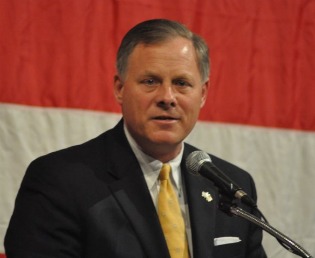A while back, somebody, I can’t remember who, sent me a paper by two military officials, Capt. Wayne Porter (Navy) and Col. Mark Mykleby (Marines), called “A National Strategic Narrative” (PDF). It’s not an official military document, just these guys’ thoughts, but they are high-placed advisors to Adm. Mike Mullen, the chairman of the Joint Chiefs of Staff, so it’s safe to say it represents cutting edge thinking in at least some significant military circles. I kept meaning to write about it, but it looks like the NYT stole my thunder.
The paper is a big-picture attempt to tell a new story about America’s place in the 21st century world, and to break once and for all from strategies and habits of thought that belonged in the 20th.
I really recommend reading the whole thing — it’s not that long. But here are the main shifts the authors describe (as described by Anne-Marie Slaughter in her intro):
- From control in a closed system to credible influence in an open system.
- From containment to sustainment.
- From deterrence and defense to civilian engagement and competition.
- From zero sum to positive sum global politics/economics.
- From national security to national prosperity and security.
The key point is that in an open, non-linear system, attempts to achieve security through control are futile. “Dominance, like fossil fuel, is not a sustainable source of energy,” as the authors put it. In a more multipolar world, where the U.S. is no longer the unquestioned hegemon, the focus should be on soft power and credible influence. The U.S. gains such influence by strengthening itself, by investing in its people and infrastructure, by maintaining mutually beneficial cooperation with other countries, and by becoming an inspirational example. Not by, say, spending half its money on a gigantic, bloated military.
Aside from the fact that I get a little thrill up my leg from thinking that folks in the upper echelon of the military are thinking like this, a couple of specific things jumped out at me.
First, this sets sustainability where it belongs: at the heart of geopolitical strategy. It’s not something environmentalists do, not some act of altruism to be indulged when times are good, not some costly add-on to industrial civilization. It is a necessary precondition for achieving prosperity, influence, and real security. “Perhaps the most important first step we can take, as part of a National Strategy,” the authors say, “is to identify which of [America’s] resources are renewable and sustainable, and which are finite and diminishing.” Among the renewable resources they include human capital (the energy of youth, the inventiveness of entrepreneurs) and natural capital (sun, wind, forests). This is a way of thinking that cuts across traditional boundaries, reframing things in terms of what can sustain us over the long-term and what can’t. It sets energy in the same context as other strategic assets. Smart.
Second, I’m struck that the thinking and strategies suited to the 21st century, as described by these military guys, are … what’s the word? … liberal. I don’t just mean ideologically, I mean that the personality traits associated with liberalism are the ones that will be necessary to prosper in the 21st century. Here’s a summary of partisan personality differences:
The most comprehensive review of personality and political orientation to date is a 2003 meta-analysis of 88 prior studies involving 22,000 participants. The researchers—John Jost of NYU, Arie Kruglanski of the University of Maryland, and Jack Glaser and Frank Sulloway of Berkeley—found that conservatives have a greater desire to reach a decision quickly and stick to it, and are higher on conscientiousness, which includes neatness, orderliness, duty, and rule-following. Liberals are higher on openness, which includes intellectual curiosity, excitement-seeking, novelty, creativity for its own sake, and a craving for stimulation like travel, color, art, music, and literature.
The study’s authors also concluded that conservatives have less tolerance for ambiguity, a trait they say is exemplified when George Bush says things like, “Look, my job isn’t to try to nuance. My job is to tell people what I think,” and “I’m the decider.” Those who think the world is highly dangerous and those with the greatest fear of death are the most likely to be conservative.
Liberals, on the other hand, are “more likely to see gray areas and reconcile seemingly conflicting information,” says Jost. As a result, liberals like John Kerry, who see many sides to every issue, are portrayed as flip-floppers. “Whatever the cause, Bush and Kerry exemplify the cognitive styles we see in the research,” says Jack Glaser, one of the study’s authors, “Bush in appearing more rigid in his thinking and intolerant of uncertainty and ambiguity, and Kerry in appearing more open to ambiguity and to considering alternative positions.”
The 21st century world will be ambiguous and uncertain, with unpredictably shifting circumstances and alliances. It will require ingenuity, creativity, flexibility, and openness to cooperation. It will require a sense of social solidarity, with the investments in infrastructure, innovation, and social insurance that implies.
The Manicheanism, preoccupation with hierarchy and control, zero-sum thinking, and reliance on military force that characterize the modern right are bad for America today and will be worse for America tomorrow. Just ask the military.



